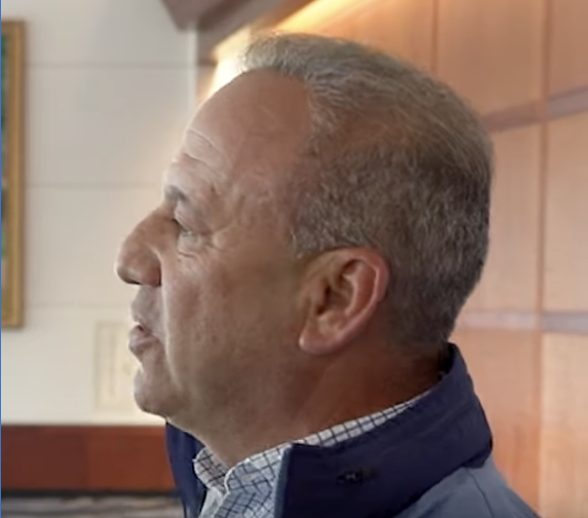For years, I convinced myself that I was living by the mantra “family comes first.” It sounded noble, responsible, and like the right thing to say. But I was lying—not to others, but to myself about what that actually meant in practice.
I used “family first” as a shield to justify behaviors that were actually harming me and, by extension, my family. I would work around the clock, telling myself it was to provide for them. I’d skip workouts and eat poorly, rationalizing that I was sacrificing my health to spend more time at home. I’d have one too many drinks, all under the guise of “family time.”
The Wake-Up Call
When I faced bankruptcy—one of the lowest points in my life—I gained clarity through an unexpected source: my wife’s wisdom. After I managed to recover financially, I felt immense gratitude toward her for standing by me through such a difficult time.
In a moment of genuine appreciation, I asked her, “What can I do for you? Anything at all.” Her answer stunned me with its simplicity and insight.
“Take care of yourself,” she said. “Sleep right, work out, take care of yourself because I know the better you take care of yourself, the better you’ll take care of all of us. I know you.”
Those words hit me like a ton of bricks. My wife saw through my self-deception. She understood that my version of “family first” was actually putting me—and therefore them—last.
The True Meaning of Family First
What I’ve come to understand is that genuine care for family begins with self-care. This isn’t selfish—it’s necessary. When we neglect ourselves:
- We have less energy to be present with our loved ones
- Our mood and patience deteriorate, affecting family dynamics
- We model unhealthy behaviors for our children
- We risk shortening our lives and time with family
The airline safety demonstration gets it right: put on your own oxygen mask before helping others. If you’re not breathing, you can’t help anyone else breathe.
Redefining My Priorities
After my wife’s wake-up call, I began to reshape my understanding of what it means to put family first. I realized that taking care of myself wasn’t in opposition to caring for my family—it was a prerequisite.
I started making changes that seemed counterintuitive at first. I carved out time for exercise, even if it meant an hour away from home. I became more disciplined about sleep, knowing that a well-rested version of me was a better husband and father. I paid attention to my nutrition and cut back on drinking.
The results were transformative. With more energy and better health, the time I spent with my family became more meaningful. I was present, engaged, and able to give them the best version of myself rather than the exhausted leftovers of a burned-out workaholic.
The Broader Lesson
This experience taught me something that applies far beyond family life. In business, in relationships, in any area where we want to excel, we must first ensure our own foundation is solid.
Many entrepreneurs and executives fall into the same trap I did. They sacrifice health, relationships, and personal well-being on the altar of success, not realizing that this approach ultimately undermines the very success they’re chasing.
True success—in family life, in business, in any arena—requires a holistic approach. You cannot compartmentalize your life and expect the neglected areas not to affect the others.
Today, I understand that “family first” means being the best version of myself for them. It means modeling healthy habits, sustainable work practices, and self-respect. It means recognizing that my well-being and my family’s well-being are inextricably linked.
Sometimes the most important truths come from those who know us best. I’m grateful my wife had the courage to tell me what I needed to hear, not what I wanted to hear. Her wisdom changed my life—and saved our family.
Frequently Asked Questions
Q: How did your bankruptcy affect your perspective on family priorities?
My bankruptcy was a pivotal moment that forced me to reevaluate everything. When you lose almost everything, you gain clarity about what truly matters. It created space for my wife’s wisdom to really sink in, helping me understand that my approach to “family first” was fundamentally flawed.
Q: What specific changes did you make to your daily routine after this realization?
I established non-negotiable time for physical exercise, improved my sleep hygiene by setting consistent bedtimes, dramatically reduced alcohol consumption, and improved my nutrition. I also became more intentional about work hours, setting boundaries that protected both my health and quality family time.
Q: Did your professional success suffer when you started prioritizing self-care?
Quite the opposite. My professional performance actually improved. With better sleep, nutrition, and physical health, my mental clarity, decision-making, and stamina all enhanced. I accomplished more in focused work periods than I previously did in longer, inefficient stretches.
Q: How did your family respond to these changes in your behavior?
Initially, there was some adjustment as routines changed. But quickly, my family noticed they were getting a better version of me—more present, patient, and energetic. My wife particularly appreciated seeing me follow through on her advice, and our relationship strengthened as a result.
Q: What advice would you give to someone who feels guilty taking time for self-care?
Recognize that self-care isn’t selfish—it’s necessary for sustainable care of others. Start small with manageable changes, and pay attention to how those improvements affect your interactions with loved ones. Remember that you’re modeling behavior for others, especially children, so practicing self-care teaches them this valuable skill too.







